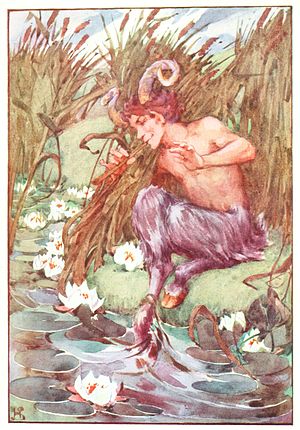Myth differs from history in that it is larger than life. Like history,
it tries to explain how the present world came to be as it is. Myth
typically invokes the supernatural, blurs the lines between the possible
and impossible, is contradictory, and often features the feats of
heroes.
Knowing your world's (and character's personal) mythology means having
insight into your characters' cultures. Myths vary between regions and
religions. This makes it a great way to individualize your cultures. If
you don't write strictly contemporary (or even if you do), mythology can
be a source of inspiration.
- Supernatural: talking animals and objects, gods, children of gods, use of magic, sometimes even the more subtle element of a mystery that is never explained.
- Blurs reality: Normal objects can take on supernatural qualities when certain conditions are met. The supernatural coexists with the ordinary world. In other mythologies, the supernatural live in different realms that border the real world and these boundaries can be crossed – sometimes by accident.
- Conflicting accounts: Because of regional and religious differences in myths, it can be impossible to settle on all the details or even the fundamentals. This can be a reflection of the different attitudes and assumptions about the world. Your characters will probably be on the spectrum of these beliefs (or rebel against them).
- Heroes: Even when the central subject of a myth is an event, a person or being is usually involved. Other myths center around the struggles of a hero. These heroes are larger than life and often deal with tragedy.
- Explanations: Some myths try to explain why the world exists in its present form. Whether your character believes or discounts a mega-myth is a reflection on that character and can bring that character into conflict with other characters. Minor myths can inspire subplots or character-development scenes.

No comments:
Post a Comment